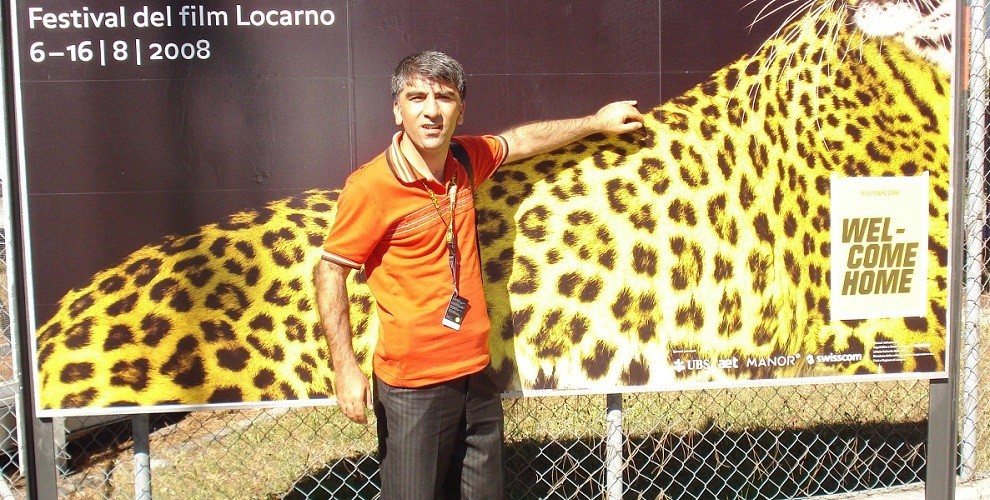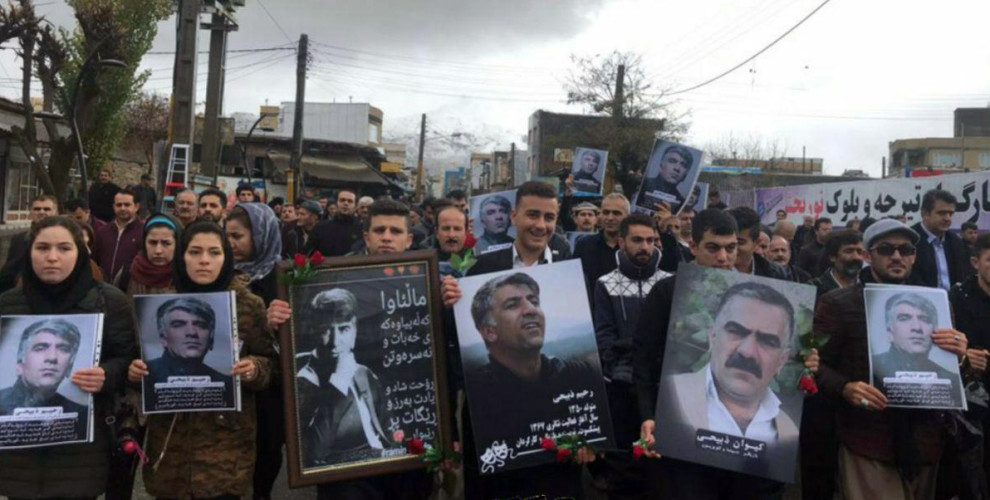Kurdish filmmaker burned to death buried in Rojhilat
The charred corpse of filmmaker Rahim Zabihi and his brother Kaywan Zabihi were discovered in a burning vehicle. The men were in the backseat of the vehicle and were handcuffed and tied.
The charred corpse of filmmaker Rahim Zabihi and his brother Kaywan Zabihi were discovered in a burning vehicle. The men were in the backseat of the vehicle and were handcuffed and tied.

The charred corpse of Kurdish filmmaker and activist Rahim Zabihi and his brother Kaywan Zabihi have been discovered near the village of Mezu, 5 km to the Bane town in Sine (Sanandaj) province.
On Friday, passersby found the burning vehicle on a slope and extinguished it. Both men were in the backseat of the vehicle and were handcuffed, reports the Kurdish human rights organization Hengaw.
Renowned Kurdish Iranian director, Rahim Zabihi, and his brother's corpses were found in a burning car off a road near the town of Bana. The brothers hands were tied behind their backs, according to people close to the brothers, according to RojNews.https://t.co/veTix2LmxM pic.twitter.com/aEC7bxbSbb
— Mekut (@Mekut_Mallet) December 8, 2018
Apart from the fire, the vehicle is said to have no further damage and no third person has been found who qualifies as a possible driver. The deaths of Rahim and Kaywan Zabihi and the location of the vehicle suggest an extrajudicial execution by Iranian paramilitary Revolutionary Guards forces, suspect family members and activists in Rojhilat. A witness told Hengaw that a few hours after the finding of the bodies, they had observed Iranian regime forces at the house of the two deceased.
Zabihi worked on documentation about Kolbars
Rahim Zabihi is known for his Iran-critical films "Hawar" (Cry) and "Welatê Efsanê" (The Land of Legend). The latter was produced by the Berlin film production company Mîtosfilm.
Most recently, Zabihi is said to have been working on a documentary on extrajudicial killings of kolbars (load carriers in the Iranian-Iraqi border area). For this reason, he had been called in several times in recent weeks to the headquarters of the Revolutionary Guard Intelligence Service, where he was apparently threatened by paramilitaries. Most recently, he was there last Wednesday, two days before his death, according to activists.
The Kurdish Zabihi brothers were buried in the cemetery of Selim Beg village following a funeral ceremony attended by thousands of people and a number of artists.
Zabihi produced 10 short and 6 long feature films for various televisions. He contested and received awards in many Iranian and international film festivals.

Targeted killings of Kurdish activists
In Rojhilat and Iran regime critics and activists are repeatedly being victims of extrajudicial executions by the Revolutionary Guard force - even in the neighboring territory of southern Kurdistan.
Iranian regime forces in the southern Kurdistan city of Sulaymaniyah killed human rights activist Iqbal Moradi, a Mariwan-born human rights activist, in July who was one of the leading activists within the Kurdistan Human Rights Organization. He was known for his support for relatives of political prisoners and survived as a former member of the Komala an assassination attempt by Pasdaran ten years before his death.
A few days before the murder of Moradi, Kurdish activist Maryam Faraji (Meryem Ferecî) was found dead in the Iranian capital Tehran. Her burned body was with signs of torture, as in the case of Iqbal Moradi.